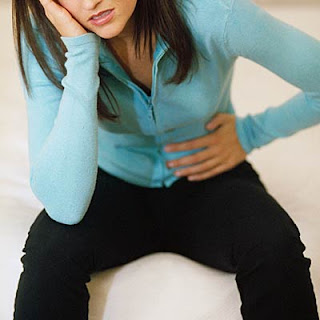Diarrhea and constipation may seem to be to opposite conditions, but
in fact the cause of both conditions are very much the same.
Diarrhea is the passage of watery and loose stools more than 3 times per week. Constipation is the passage of hard and dry stools often less than 3 times per week. To understand diarrhea and constipation, it is important to understand how the intestines work. When we eat, the food travels through the colon where water is absorbed. In this process stool is formed. If too much water is absorbed or the food moves too slowly, it may lead to constipation. If not enough water is absorbed or the food moves too quick where the muscle contractions of the colon are too active, diarrhea may be the result. The common cause here is related to food. With diarrhea there may too much intake of fluids and an incorrect diet with constipation there may be a lack of fluid intake and also an incorrect diet. Exercise also plays an important role.
For successful treatment of both diarrhea and constipation, the first focus should be on the food. Dietary fiber plays an important role here. It has the ability to hold water all the way through the colon. If there is either too much or too less, it can be a cause for diarrhea and constipation. Control your fiber intake. High fiber foods are most vegetables and fruit, while example of low fiber goods are cheese and eggs. Also review how much fluids you drink. Water, fruit and vegetable juices are the most important fluids, so use them in the right proportions.
If you are eating all the right foods, have enough exercise and the symptoms of diarrhea or constipation do not go away, or if you are a chronic sufferer, you need to talk to a doctor. Do not wait too long with that, because If either condition goes on too long, it may cause all kinds of other medical conditions. In the case of diarrhea you may be slowly de-hydrating, while in the case of constipation, you may start to develop problems in the abdomen. There are many medications available for both diarrhea and constipation as a pill, fluid or even chewing gum. Your doctor will be able to help you out.
In the end you are the best judge of your own body. By following the positive lifestyle changing steps in regards to food and exercise, diarrhea and constipation will be a thing of the past.
How Diarrhea And Constipation Are Related.
Diarrhea is the passage of watery and loose stools more than 3 times per week. Constipation is the passage of hard and dry stools often less than 3 times per week. To understand diarrhea and constipation, it is important to understand how the intestines work. When we eat, the food travels through the colon where water is absorbed. In this process stool is formed. If too much water is absorbed or the food moves too slowly, it may lead to constipation. If not enough water is absorbed or the food moves too quick where the muscle contractions of the colon are too active, diarrhea may be the result. The common cause here is related to food. With diarrhea there may too much intake of fluids and an incorrect diet with constipation there may be a lack of fluid intake and also an incorrect diet. Exercise also plays an important role.
Diarrhea and Constipation
For successful treatment of both diarrhea and constipation, the first focus should be on the food. Dietary fiber plays an important role here. It has the ability to hold water all the way through the colon. If there is either too much or too less, it can be a cause for diarrhea and constipation. Control your fiber intake. High fiber foods are most vegetables and fruit, while example of low fiber goods are cheese and eggs. Also review how much fluids you drink. Water, fruit and vegetable juices are the most important fluids, so use them in the right proportions.
If you are eating all the right foods, have enough exercise and the symptoms of diarrhea or constipation do not go away, or if you are a chronic sufferer, you need to talk to a doctor. Do not wait too long with that, because If either condition goes on too long, it may cause all kinds of other medical conditions. In the case of diarrhea you may be slowly de-hydrating, while in the case of constipation, you may start to develop problems in the abdomen. There are many medications available for both diarrhea and constipation as a pill, fluid or even chewing gum. Your doctor will be able to help you out.
In the end you are the best judge of your own body. By following the positive lifestyle changing steps in regards to food and exercise, diarrhea and constipation will be a thing of the past.
Incoming search terms:
- diarrhea to constipation
- what causes dry stools
Labels:
Constipation Symptoms















